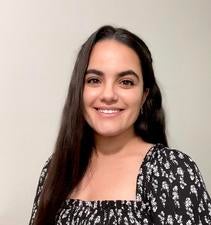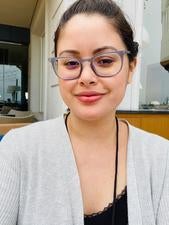Two UC Riverside School of Education doctoral students have received grants from the Hammill Institute on Disabilities to support research aimed at improving the education of individuals with disabilities.
Zaira Jimenez, a fourth-year student; and Aya Shhub, a third-year student; will each receive $5,000 to support their studies and data collection for their dissertations.
The Hammill Institute is a nonprofit dedicated to enhancing the well-being of people with disabilities, including supporting research in the field.
Michael Solis, an associate professor of special education, said the recognition for his two students is a sign of the promise they’ve shown in making meaningful contributions toward the Hammill Institute’s mission.
“I am very fortunate to have two outstanding doctoral students who applied for and were granted these awards,” he said.
Jimenez, a member of Solis’ research lab for four years, said she was honored to receive the grant, noting her own journey of having gone to underprivileged schools, spending countless hours in the library to catch up, and working as a barista. With hard work and her passion for helping students with disabilities, Jimenez has grown in the field to working as a program coordinator and teaching assistant.
“I am grateful and excited about this accomplishment as it will help with the dissemination of data that will help expand our understanding of the unique variables that require attention when working with students who have disabilities,” she said.
Shhub, a member of Solis’ research lab for three years, has worked as a public school special education teacher and a graduate teaching assistant. Her area of research is reading fluency with a focus on prosody development, which consists of expression, syntax, and phrasing.
Her grant will help fund a study identifying the relationship of word reading, fluency, and comprehension for fourth to sixth graders and students with autism spectrum disorder.
“The Hammill Institute Fellowship funding would support completing my dissertation study, developing my skills as a quantitative researcher through mentorship, opportunities to network with well-established researchers, and the opportunity to present at a national conference that otherwise would not be affordable to attend,” Shhub said.

